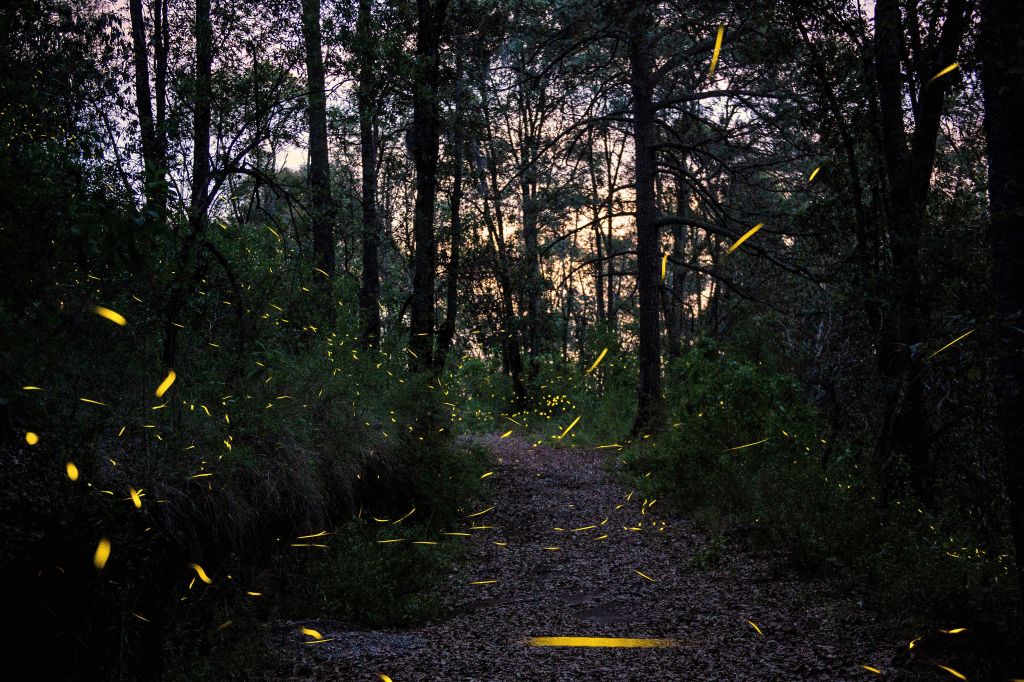Humanity is killing off fireflies, new study says


A free daily email with the biggest news stories of the day – and the best features from TheWeek.com
You are now subscribed
Your newsletter sign-up was successful
There are more than 2,000 species of fireflies in the world, but many of them are facing extinction because of human activity, according to a study published Monday in the journal BioScience. Some of the 10 top ways humanity is snuffing out fireflies are not unique to the beloved bioluminescent beetles — loss of habitat to development and agriculture is the top threat to fireflies globally, for example, and exposure to pesticides like neonicotinoids, used on soybeans and corn, is No 3.
But firefly tourism in places like Japan, Thailand, North Carolina, Mexico, and Malaysia has also put species at risk of extinction, and the No. 2 threat outlined in the study is light pollution. "In addition to disrupting natural biorhythms — including our own — light pollution really messes up firefly mating rituals," study co-author Avalon Owens at Tufts University said in a news release. Fireflies use their glow to attract mates, and they can't always outshine direct light from street lights and neon signs or, more insidiously, skyglow, the diffuse light from cities and towns that can dim the night sky even far into the wilderness.
"Of course fireflies are particularly vulnerable to light pollution, more so than perhaps any other insect group, so it makes sense that this also emerges as a major concern," Dave Goulson, a biology professor at Britain's University of Sussex who chronicles the decimation of bug species, told CNN. Goulson was among the dozen authors of this study, all of them affiliated with the Firefly Specialist Group of the International Union for the Conservation of Nature (IUCN).
The Week
Escape your echo chamber. Get the facts behind the news, plus analysis from multiple perspectives.

Sign up for The Week's Free Newsletters
From our morning news briefing to a weekly Good News Newsletter, get the best of The Week delivered directly to your inbox.
From our morning news briefing to a weekly Good News Newsletter, get the best of The Week delivered directly to your inbox.
Lead author Sara Lewis, a biology professor at Tufts, pointed to the Malaysian firefly (Pteroptyx tener) and English glowworm (Lampyris noctiluca) as among the species at risk of extinction, but said some, like the Big Dipper (Photinus pyralis) common in North America, "can survive pretty much anywhere."
A free daily email with the biggest news stories of the day – and the best features from TheWeek.com
Peter has worked as a news and culture writer and editor at The Week since the site's launch in 2008. He covers politics, world affairs, religion and cultural currents. His journalism career began as a copy editor at a financial newswire and has included editorial positions at The New York Times Magazine, Facts on File, and Oregon State University.
-
 Political cartoons for February 14
Political cartoons for February 14Cartoons Saturday's political cartoons include a Valentine's grift, Hillary on the hook, and more
-
 Tourangelle-style pork with prunes recipe
Tourangelle-style pork with prunes recipeThe Week Recommends This traditional, rustic dish is a French classic
-
 The Epstein files: glimpses of a deeply disturbing world
The Epstein files: glimpses of a deeply disturbing worldIn the Spotlight Trove of released documents paint a picture of depravity and privilege in which men hold the cards, and women are powerless or peripheral
-
 Nobody seems surprised Wagner's Prigozhin died under suspicious circumstances
Nobody seems surprised Wagner's Prigozhin died under suspicious circumstancesSpeed Read
-
 Western mountain climbers allegedly left Pakistani porter to die on K2
Western mountain climbers allegedly left Pakistani porter to die on K2Speed Read
-
 'Circular saw blades' divide controversial Rio Grande buoys installed by Texas governor
'Circular saw blades' divide controversial Rio Grande buoys installed by Texas governorSpeed Read
-
 Los Angeles city workers stage 1-day walkout over labor conditions
Los Angeles city workers stage 1-day walkout over labor conditionsSpeed Read
-
 Mega Millions jackpot climbs to an estimated $1.55 billion
Mega Millions jackpot climbs to an estimated $1.55 billionSpeed Read
-
 Bangladesh dealing with worst dengue fever outbreak on record
Bangladesh dealing with worst dengue fever outbreak on recordSpeed Read
-
 Glacial outburst flooding in Juneau destroys homes
Glacial outburst flooding in Juneau destroys homesSpeed Read
-
 Scotland seeking 'monster hunters' to search for fabled Loch Ness creature
Scotland seeking 'monster hunters' to search for fabled Loch Ness creatureSpeed Read
